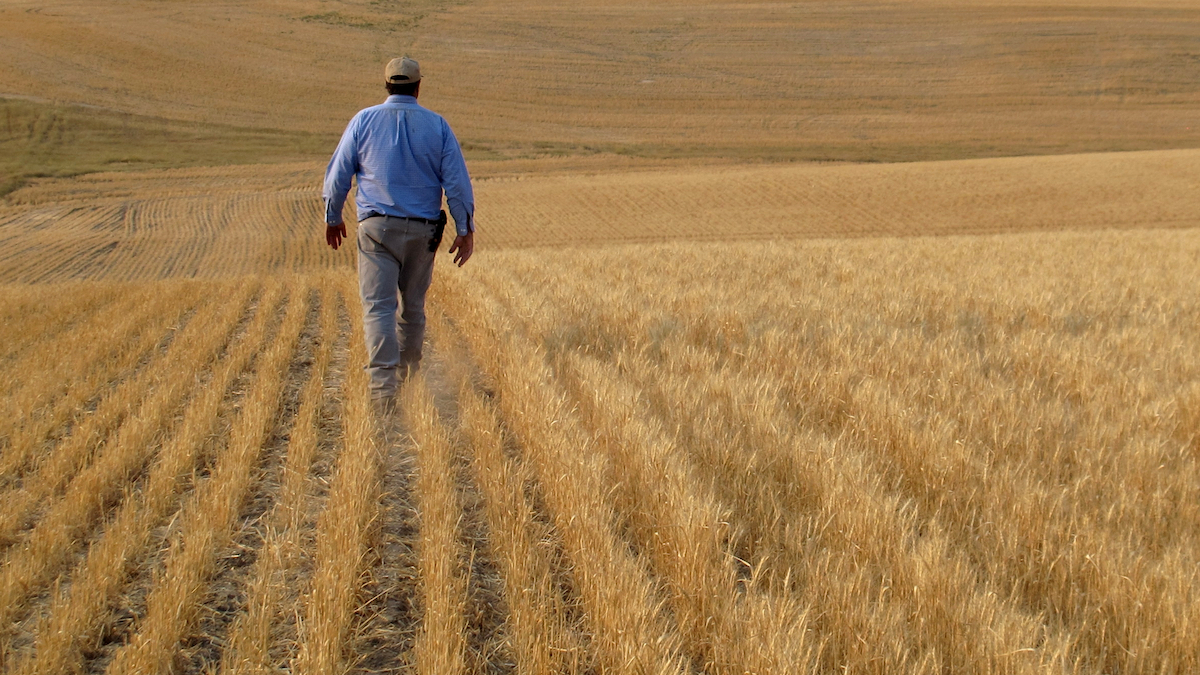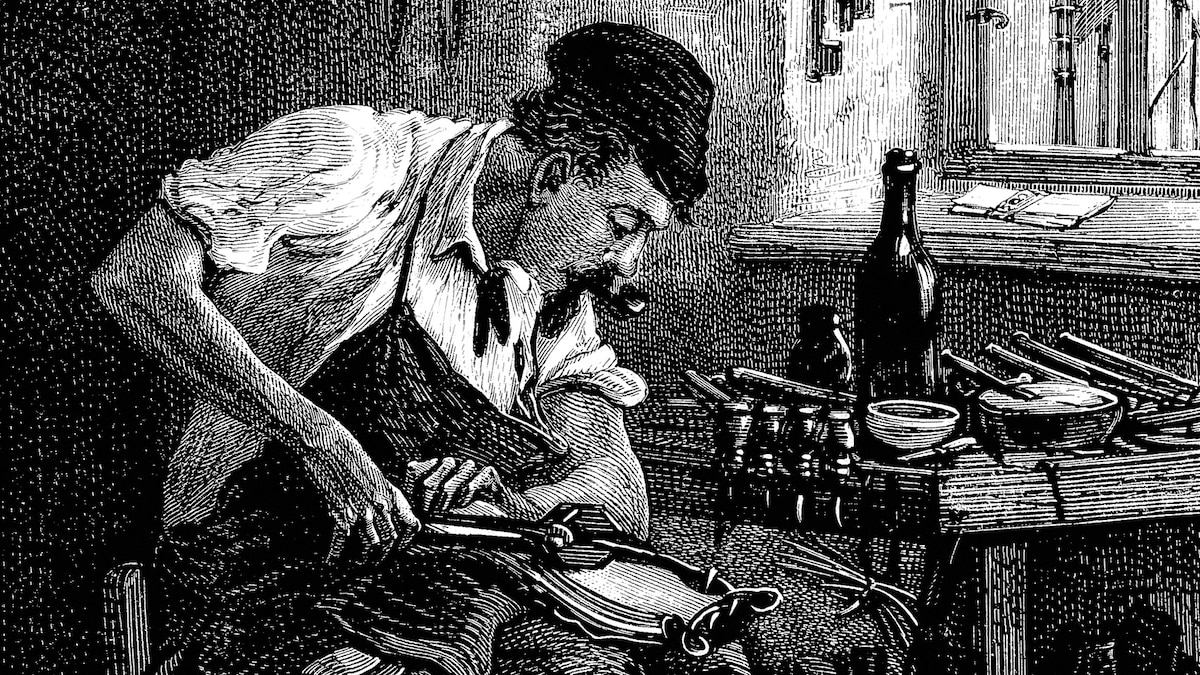About ten years ago a nine-year-old girl named Rachel died as a result of a car accident. It might seem her short life was tragically wasted—except that, during her few years here on earth, she managed to make a real difference. When Rachel was six, she learned at school of a charitable organization called Locks of Love, which used donations of hair to make wigs for children who had become bald because of chemotherapy treatments for cancer. Deeply moved by what she heard, Rachel asked for and received permission from her mom to cut off her hair and donate it. Two years later, Rachel’s parish began raising money for a charity created to dig wells in Africa, providing poor families with clean water. Rachel again responded with compassion, wanting to skip the customary party for her upcoming birthday and instead ask her classmates and friends to donate $9 each for this cause. She hoped to raise $300 this way, but only $220 came in; Rachel was disappointed, but still happy she had something to contribute to those in need.
Then, sadly, Rachel was one of the victims of a thirteen-car pile-up, caused when two trucks collided. She was severely injured and in a coma; wanting to console her family, many friends, relatives, families of fellow students, and even complete strangers, donated to the African charity in her name—and the money kept coming. Before long, the $220 Rachel had collected turned into an amazing $50,000. Her parents, filled with love and pride, tearfully told her this as she lay in her hospital bed, though they didn’t know if their dying daughter could hear and understood. Rachel’s condition worsened, and soon afterwards her heart stopped, and she was gone. Her parents were heartbroken, but inspired by her generous love, they donated her hair and organs to other children in need. After word spread when a local newspaper told the story of her life, the number of donations to the charity for Africa increased dramatically, eventually topping $750,000—a wonderful tribute to Rachel, and an almost miraculous multiplication of the initial $220 she raised (William J. Bausch, The Story Revealed, p. 121). A simple spirit of generosity and compassion can achieve great things—because whenever we act with unselfish love, we are already living in and experiencing God’s Kingdom.
Kind and caring persons such as Rachel are like the tender shoot or branch mentioned in the Book of the Prophet Ezekiel (17:22-24): they allow God to transplant them or use them in the way or place where they can do the most good in life, thereby growing beautiful and majestic, and bringing forth much fruit. This image sets the stage for Our Lord’s parable in the Gospel of Mark (4:26-34). The Kingdom of God has tiny beginnings precisely because it’s meant to take root in our own hearts; the Lord is able to multiply our humble efforts and thereby achieve something wonderful and lasting. If we allow this to happen, we will be ready for the judgment St. Paul describes in his Second Letter to the Corinthians (5:6-10); we will not appear before Christ empty-handed, but will come to Him bearing fruit rooted in love.
While traveling through rural Oklahoma, a man ran out of gas, so he walked to a nearby farmhouse and asked if he could use the phone to call a service station. However, the farmer insisted on driving him to the station, and then drove him back, helped him put gas in his car, and waited to make sure the car would start. The traveler offered him $20, but the farmer refused to take it, saying, “Look, mister, I feel very good about helping you. If I took your money, you’d be buying back that feeling from me—and it’s not for sale!” (homily notebook, “Generosity”).
As the farmer noted, a simple good deed on our part can result in spiritual blessings out of all proportion to our efforts—and if the recipient of the good deed “pays it forward,” we’ve helped open up an avenue into the world for further installments of God’s blessings and gifts. At the end of time Jesus will return in unmistakable power and glory, judging the living and dead and ushering in the Kingdom of God in all its fullness—but we don’t have to wait for the end of the world to begin experiencing the Kingdom here and now. Every time we act out of faith and love, we help make the Kingdom more present here among us, and we are granted a foretaste of its beauty and peace and joy.
We’ve all had the experience of going out of our way to perform a good deed or do a favor for someone in need, and the sense of satisfaction we feel afterwards—as long as we don’t corrupt it by becoming too proud of ourselves—can be a very real sign of God’s pleasure and blessing. The Lord sometimes works spectacular miracles, but He usually prefers to work behind the scenes, using our acts of Christian charity to console and assist hurting persons and to make a small but real difference in the world around us. If we look at the beauty of nature, it’s quite obvious that God delights in living things, including all the animals and plants around us. That being the case, it was very natural and appropriate for Jesus to describe His heavenly Father’s Kingdom in terms of planting, growing, and harvesting—while in the process reminding us and reassuring us that our simple, humble efforts to follow Him and serve others in His Name do play an important role in the unfolding of His plan of salvation.
Only in Heaven will we fully know and understand all the results of our good deeds and all the ways people were blessed by them. In the meantime, we’re meant to look for and use our opportunities to act with kindness and compassion each day—and the more we do this, the more we and the people around us will be blessed. God’s heavenly Kingdom is the dwelling place of many great saints, but even greater multitudes of ordinary people like Rachel who became great in the Lord’s eyes because of their simple acts of love. Today you and I are challenged to imitate them, and are promised that if we do, one day we will rejoice with them as we joyfully share in our Savior’s everlasting glory and peace.






